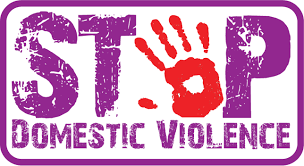By: Martin Roche, Partner, Etoile Partners Ltd
“Emerging Africa Infrastructure Fund has 15 sustainable energy projects in new business pipeline”
The UK parliament’s All Party Parliamentary Group on Africa (APPGA) has launched a series of three seminars designed to stimulate debate and contribute to policy development on mobilising private capital for infrastructure in Africa. The first of the series – which looked at the vital issue of sustainable energy infrastructure – took place at the House of Commons on 22nd March. Hosted by the APPGA, the series was proposed by the Emerging Africa Infrastructure Fund (EAIF), which worked with Afford – the African Foundation for Development – to develop and support the initiative.
A capacity audience from the African diplomatic corps in London and from business, finance, industry, NGOs and academic institutions attended the meeting, which was hosted by the APPGA’s chair and Labour MP, Chi Onwurah. Ms Onwurah jointly chaired the session with Onyekachi Wambu from Afford.
In her opening remarks Ms Onwurah said “Sustainable and accessible energy infrastructure in Sub-Saharan Africa is incredibly important and needs to be at the top of the agenda”.
“The APPGA exists to promote meaningful and positive relationships between Africa and the UK. It is in the interests of both the UK and African nations to work together to support Africa’s economic development. This session will contribute to spreading knowledge of the many initiatives already in place and informing policy development.”
Julia Prescot, a non-executive director of the Emerging Africa Infrastructure Fund, said that the Fund was now in its fourteenth successful year. It provides debt funding to private sector infrastructure projects in Sub-Saharan Africa. It operates in eight sectors and has helped finance over 60 projects in 19 SSA countries.
The Fund is a public/private partnership supported by the governments of the UK, The Netherlands, Sweden and Switzerland, private sector banks and development finance organisations. EAIF is a member of the Private Infrastructure Development Group.
Julia Prescot said EAIF is already a leading provider of debt funding to the sustainable energy sector in Sub-Saharan Africa and announced that the Fund currently has 15 new sustainable energy projects in 9 countries in its new business pipeline. If they all each financial close they will provide 665MW of electricity.
“These new projects have the potential to significantly widen access to sustainable electricity, help stimulate economies and make public services like education and health more productive. They are prime examples of how EAIF contributes to mobilising private sector capital and enterprise to bring a wide range of benefits to people and economies,” she said.
The meeting heard about three existing EAIF sustainable energy projects.
In the Sesese Islands on Uganda’s Lake Victoria EAIF provided debt funding for a multi-dimensional project that included a 1.6MW solar farm, solar powered water pumps and a new 35KV power distribution network. On Rwanda’s Lake Kivu the Fund was central to the project that is a pioneer in extracting methane gas from the Lake to fuel a 25MW power plant.
The third example of EAIF’s renewable power portfolio is a 10.3MW solar farm in Soroti, Uganda. Construction of the Soroti project began on 18th March this year. The project financing was led by the Dutch development bank, FMO, which loaned an equal amount to EAIF. Soroti solar farm benefits too from the Global Energy Transfer Feed-in Tariffs programme (GET FiT). Because of GET FiT, the local electricity grid is being made more reliable with higher capacity and contributing towards more affordable energy for users.
In addition to the presentation from Julia Prescot, the meeting heard from David Kennedy, director general of economic development at the UK Department for International Development (DFID) and from Edward George, head of research at Ecobank Group.
Mr Kennedy explained that the UK government’s prime aim is to contribute to alleviating poverty through the structural transformation of economies. He said people cannot be brought out of poverty without economic development and lack of energy capacity is the single biggest constraint to economic growth.
He focused on DFID’s role in the energy sector and emphasised the importance of encouraging legal and regulatory structures in Sub-Saharan countries that enable investment and improve the ability of energy markets to work effectively, competitively and efficiently to the benefits of all stakeholders.
Edward George spoke about size of the challenge of meeting need and demand for electricity in Sub-Saharan Africa, saying that African demand for electricity is continuously growing.
He said the gap between what exists now and what is needed is enormous and explained that Nigeria has a generating capacity similar to that of London, but Nigeria has a population 20 times bigger.
“The gap between what exists now and what is needed is absolutely enormous.
40% of Africans have no access to power and in some individual countries the figure is much higher.”
Mr George saw micro-generation as an increasingly viable, practical and affordable way of powering homes and small businesses in areas remote from mainstream electricity generation and distribution facilities.
He went on to say that in many parts of Africa electricity distribution networks were often hundreds of miles from remote rural areas and that is no realistic prospect of these places being connected to national grids.
“It is encouraging to hear of the new sustainable energy projects that EAIF has in its business pipeline. Solar farms and small hydro stations such as those EAIF helps to finance can transform urban and rural areas.”
The All Party Parliamentary Group on Africa will be hosting two further seminars on African infrastructure issues later in the year. Both events will be supported by the Emerging Africa Infrastructure Fund and Afford.



